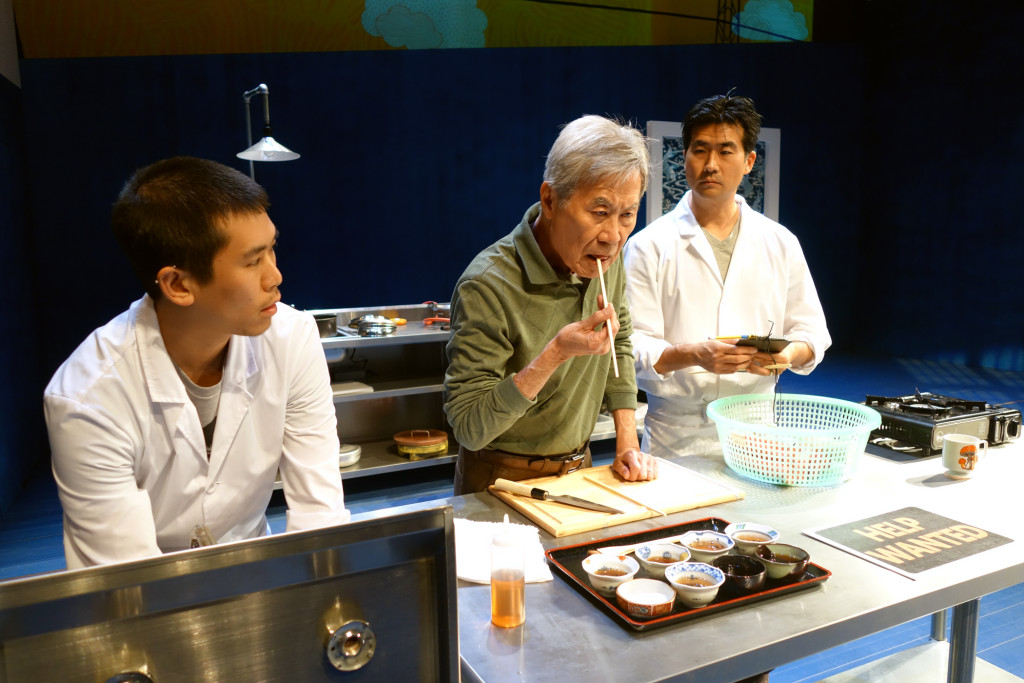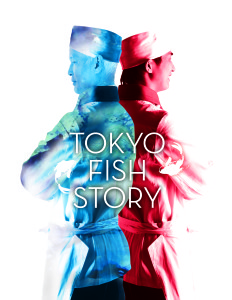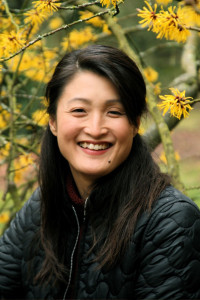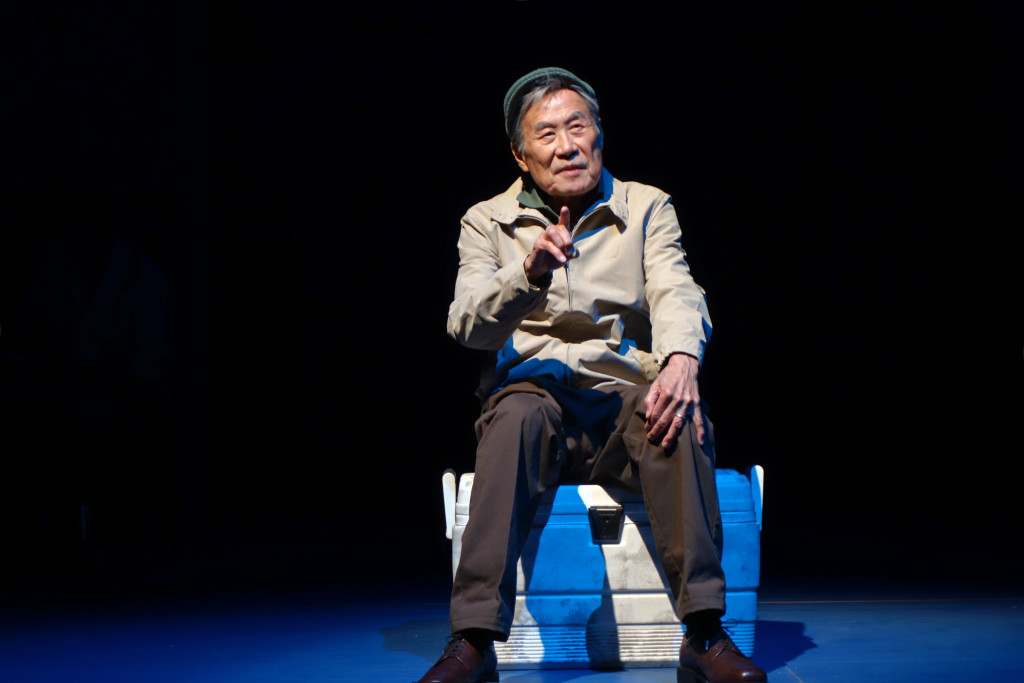
Koji (Sab Shimono) is an aging sushi master on a lifelong quest to make the perfect sushi. His once-thriving restaurant is now being overshadowed by newer and hipper locations, but Koji’s young and talented protege, Takashi (Ryan Yu), hopes to revive the business and reinvigorate interest in Koji’s traditional craft. Takashi enlists the help of Koji’s other assistants: the hip-hop obsessed Nobu (Lawrence Kao) and the brash Ama (Jully Lee), the rare female sushi chef toiling in a male-dominated field.
This is the premise of tokyo fish story, the latest play by award-winning playwright Kimber Lee, whose earlier works — including Fight, Brownsville Song (B-Side For Tray), and Different Words For the Same Thing — have appeared on stages across the country and to critical acclaim.
I was privileged last week to have a chance to chat with Lee about her inspiration in writing tokyo fish story, and her experiences as an Asian American playwright.
 Lee says that tokyo fish story was conceived after viewing documentaries on Japan’s elite sushi masters, who dedicate their lives to the delicate and nuanced art of sushi-making.
Lee says that tokyo fish story was conceived after viewing documentaries on Japan’s elite sushi masters, who dedicate their lives to the delicate and nuanced art of sushi-making.
“I was fascinated by this idea of ‘genius’,” says Lee. “Whenever you dig deeper into these stories of prodigies or geniuses, you find a common story of obsession with perfection. I was particularly interested in the single-minded focus of these sushi chefs, who measure their pursuit of perfection so incrementally, and by varying even just one detail at a time. I wondered how this mindset might impact them and the relationships they form with those around them.”
“These are people who dedicate their entire life to their art, even while they recognize that perfection is elusive and might never be reached. For them, it is the journey that is important.”
In tokyo fish story, Koji must reconcile his traditional pursuit of the perfect sushi with a changing world that has lost interest in the sophistication of his craft, and where women aspire to enter a field that has long shunned female sushi chefs. “There is a balance between wanting to honour tradition that has been handed down from generations, and needing to evolve those traditions into something more inclusive and thereby allow things to be done differently,” says Lee, who notes that even in the modern world of sushi, women are still stereotypically viewed as less capable chefs and face steep obstacles if they hope to be accepted among the ranks of Japan’s elite sushi masters.

Lee’s play applies a multi-faceted lens to questions of traditionalism and progressivism, as it pertains to the quest for perfection while retaining artistic and cultural authenticity. The relationship between the conservative Koji and the young Takashi explores this dynamic directly, while the secondary character of Ama adds the lens of gender.
“Ama’s entrance into that world of elite sushi masters speaks to that balance of wanting to honor tradition and giving full beauty to how things have been done, but also asks the question: at what point do you hold yourself back by not allowing things to change? There has to be a way of organically evolving and growing in order to move forward.”
These questions feel intensely familiar to me: as an Asian American and as a woman, the question of how to evolve our politics to achieve inclusion without compromising identity is central. Lee agrees, even though she emphasizes that her writing process is not one driven at the outset by a deliberate political message; instead, Lee hopes that each audience member will use their personal histories to develop their own relationships with the stories she brings to the stage. For Lee, the interpersonal stories contained within tokyo fish story resonated with her experiences as an Asian American female playwright.
“Something about that world of sushi chefs felt familiar to me, even while it felt new,” she says. This intensity and desire for perfection — this focus — spoke to me; it’s a lot of what theatre is like. I think it speaks to everybody. It’s a very human story.”
Other aspiring Asian American actors and playwrights might also find tokyo fish story‘s themes of focus and perseverance evocative. Lee has profound words of encouragement for these hopeful young Asian American artists, particularly those whose work must simultaneously reflect an authentic Asian American identity while evolving it.

“We need you,” says Lee. “There is an intense expectation on each of us because there just aren’t that many of us in the world of theatre. So for those of us who get an opportunity, we also face extra scrutiny and carry the extra weight of needing to be representative of everybody. But, it’s impossible for us to represent everyone because Asian America is not a monolith. That’s why we don’t just need Asian American artists, we need a whole range of Asian American artists.”
“If you’re writing something, and you’re worried that what you’re creating doesn’t fit in, please keep doing what you’re doing,” adds Lee. “Your voice is exactly the one we need.”
tokyo fish story is currently in previews at the South Coast Repertory, and premieres this weekend on May 13th. It runs until March 29th with special post-show discussions occurring on March 17th and March 18th. Tickets are currently available online through the SCR website.
